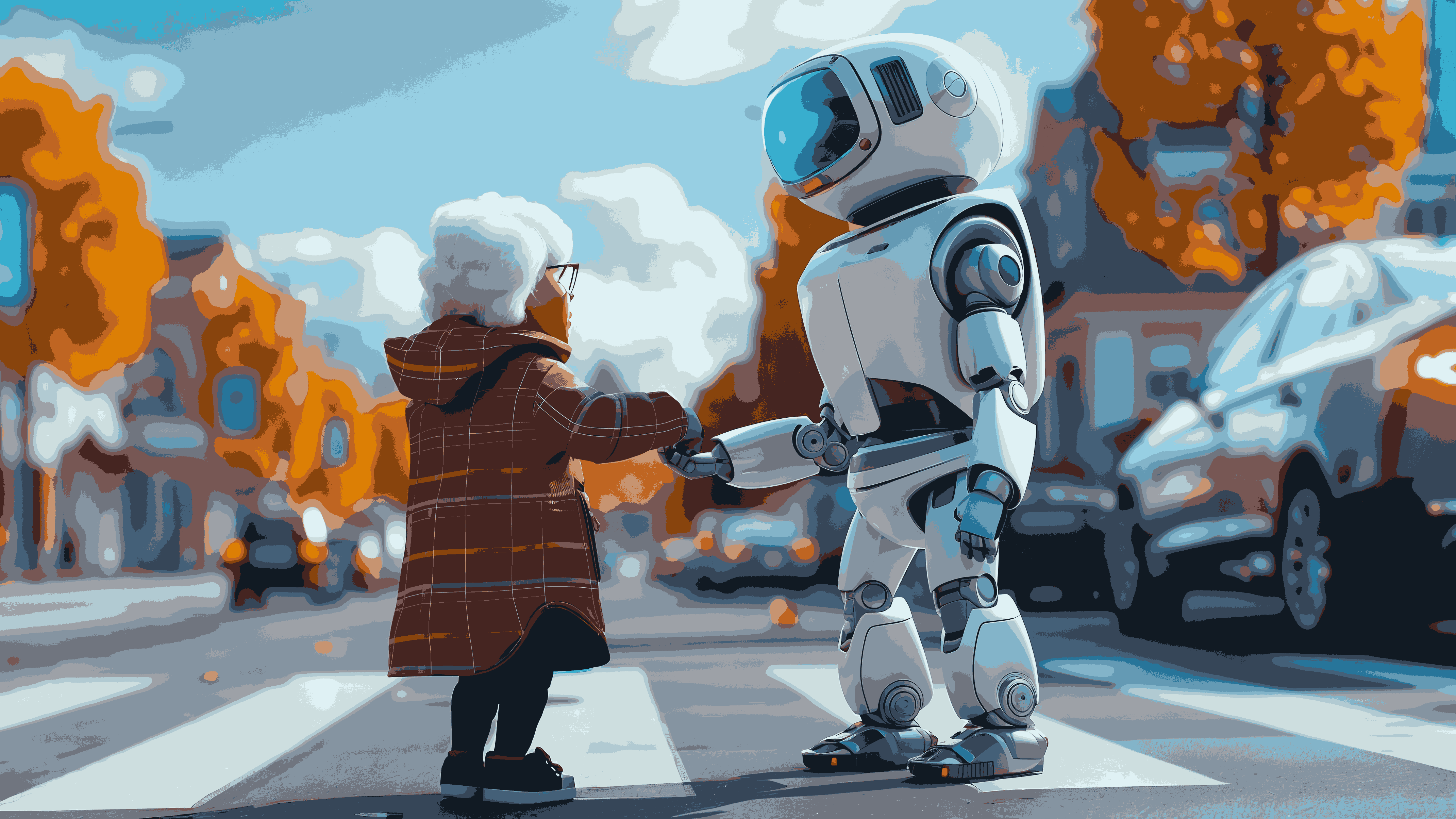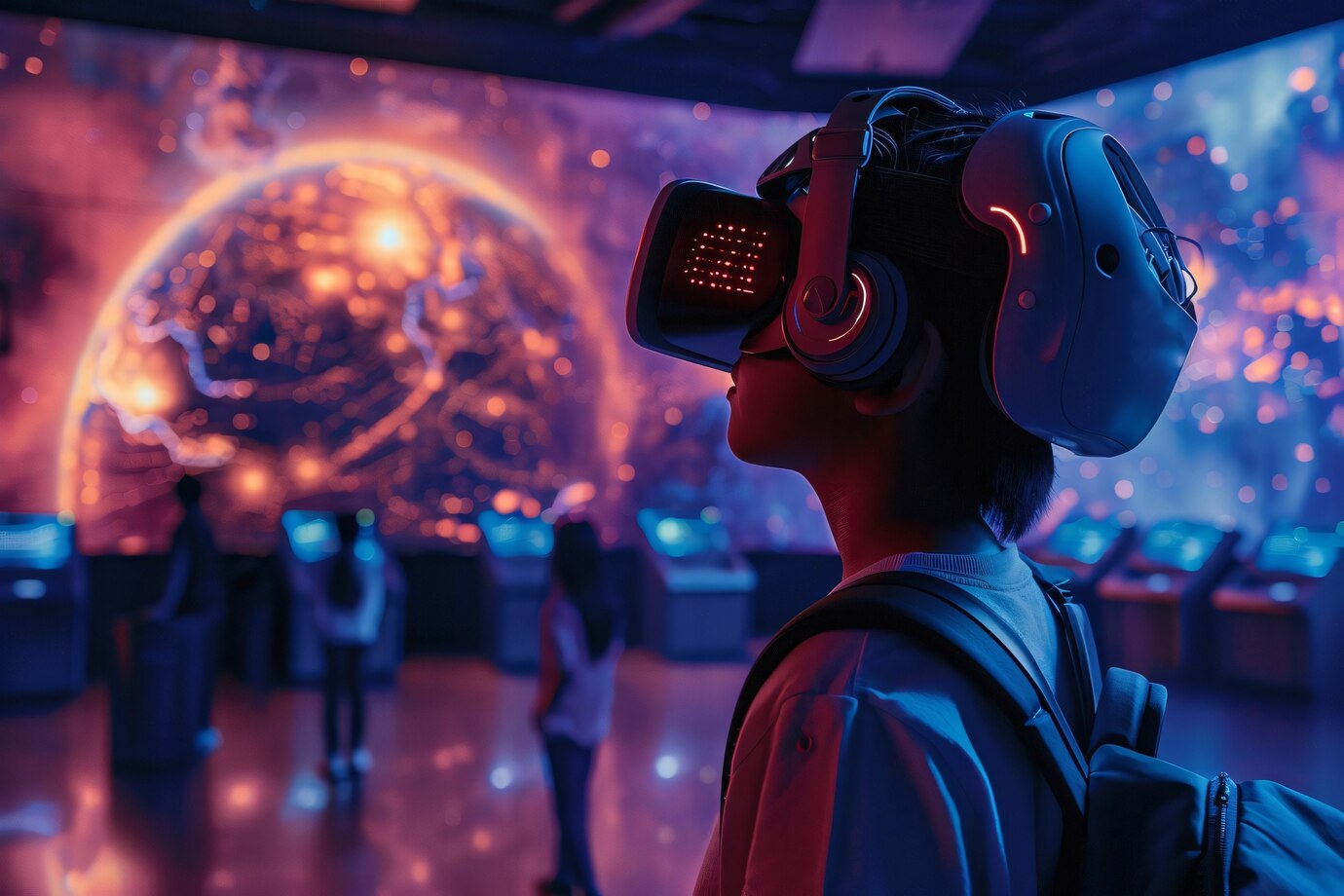
Artificial Intelligence (AI) is no longer a concept confined to science fiction; it's a reality that's transforming industries, reshaping economies, and altering the way we live and work. From smart assistants like Siri and Alexa to self-driving cars and advanced medical diagnostics, AI is becoming increasingly integrated into our daily lives. But as AI continues to advance, questions arise about its impact on humanity. Is AI a force for good or a potential threat? How does it compare to human capabilities? Let’s explore the pros and cons of AI versus humans and what it could mean for the future.
The Advantages of AI
1. Efficiency and Productivity
One of AI’s most significant strengths is its ability to process vast amounts of
data quickly and accurately. Unlike humans, AI systems don’t need breaks, sleep, or
vacations. They can work around the clock, increasing efficiency and productivity in
tasks ranging from data analysis to customer service.
Example: In industries like manufacturing, AI-driven robots can perform repetitive tasks with precision, reducing the need for human labor and speeding up production processes.
2. Consistency and Accuracy
Humans are prone to errors, especially when performing tedious or complex tasks. AI,
on the other hand, can maintain consistency and accuracy without fatigue. This makes
AI ideal for tasks that require high precision, such as financial forecasting,
medical diagnostics, and quality control.
Example: In healthcare, AI algorithms can analyze medical images to detect diseases like cancer with a level of accuracy that rivals or exceeds that of human doctors.
3. Handling Complex Data
AI can analyze and interpret complex datasets far more quickly and efficiently than
humans. This capability is invaluable in fields like finance, healthcare, and
research, where data-driven decisions are crucial.
Example: AI can be used in financial trading to predict market trends and make split-second decisions that maximize profits, something that would be nearly impossible for a human trader to do manually.
4. Cost Reduction
By automating routine tasks and reducing the need for human labor, AI can
significantly lower operational costs for businesses. This can lead to lower prices
for consumers and increased profitability for companies.
Example: Customer service chatbots can handle a large volume of inquiries without the need for a human representative, reducing staffing costs.
The Disadvantages of AI
1. Job Displacement
Perhaps the most significant concern surrounding AI is its potential to displace
jobs. As AI systems become more capable, many jobs, especially those involving
routine tasks, are at risk of being automated. This could lead to widespread
unemployment and social disruption if not managed properly.
Example: In industries like retail and manufacturing, automation could lead to job losses as machines and AI systems replace human workers in tasks like checkout, inventory management, and assembly line work.
2. Lack of Creativity and Emotional Intelligence
While AI excels at data processing and pattern recognition, it lacks the creativity
and emotional intelligence that humans possess. AI can generate content based on
patterns, but it doesn’t understand context or emotion in the same way humans do.
Example: While AI can compose music or write articles, it lacks the ability to create original works that resonate on a deep emotional level, something that human artists, writers, and musicians can do.
3. Ethical Concerns
AI raises several ethical issues, from concerns about privacy and surveillance to
the potential for bias in AI algorithms. Because AI systems learn from data, they
can inadvertently perpetuate biases present in that data, leading to unfair or
discriminatory outcomes.
Example: Facial recognition technology has been criticized for its potential to invade privacy and for its higher error rates when identifying people of color, leading to concerns about racial bias in law enforcement applications.
4. Dependence and Vulnerability
As we become more reliant on AI, there’s a risk of becoming too dependent on it.
This could make systems vulnerable to failures, cyberattacks, or malfunctions that
humans may not be able to quickly rectify.
Example: If an AI system responsible for managing critical infrastructure, like power grids or water supply, were to fail or be compromised, the consequences could be catastrophic.
The Strengths of Humans
1. Creativity and Innovation
Humans possess an innate ability to think creatively, innovate, and come up with
novel ideas. This ability to generate original concepts, art, and inventions is
something that AI, which relies on existing data and patterns, cannot replicate.
Example: The development of new artistic styles, groundbreaking scientific theories, and revolutionary products all stem from human creativity, something AI currently cannot emulate.
2. Emotional Intelligence
Humans excel in understanding and managing emotions—both their own and others'. This
emotional intelligence is crucial in building relationships, leading teams, and
navigating complex social situations.
Example: In professions like counseling, teaching, and leadership, the ability to empathize, motivate, and inspire others is essential and is an area where humans significantly outperform AI.
3. Ethical Judgement
Humans are capable of making ethical decisions based on a complex understanding of
morality, context, and societal norms. While AI can follow ethical guidelines, it
doesn’t have a true understanding of right and wrong.
Example: In situations that require moral judgment, such as legal cases or medical decisions, human intuition and ethical reasoning are essential.
4. Adaptability
Humans can quickly adapt to new environments, learn new skills, and apply their
knowledge in novel ways. This adaptability allows humans to thrive in a wide range
of situations, something that AI, which is typically task-specific, struggles with.
Example: When faced with unexpected challenges or changes, humans can improvise solutions on the spot, a level of flexibility that most AI systems do not possess.
The Future: Collaboration Between AI and Humans
The debate between AI and human capabilities doesn’t have to be a zero-sum game. The future likely lies in collaboration, where AI and humans complement each other’s strengths and mitigate each other’s weaknesses. Here’s how this collaboration could unfold:
- Enhanced Productivity: AI can handle repetitive, data-heavy tasks, freeing up humans to focus on creative, strategic, and complex problem-solving activities. This partnership could lead to unprecedented levels of productivity and innovation.
- Improved Decision Making: AI’s data processing power combined with human intuition and ethical judgment could result in better decision making in fields like medicine, law, and business.
- Human-Centered AI: As AI development continues, there’s a growing emphasis on creating AI systems that are aligned with human values, ethics, and needs. This approach aims to ensure that AI enhances human life rather than detracts from it.
Conclusion: The Balance Between AI and Human Capabilities
AI is a powerful tool that, when used wisely, can bring about significant benefits. However, it’s important to recognize that AI has its limitations, and there are areas where human capabilities will remain unmatched for the foreseeable future. The key to a positive future with AI lies in finding the right balance—leveraging AI’s strengths while valuing and preserving the unique qualities that make us human.
As we move forward, it’s crucial to foster collaboration between AI and humans, ensuring that AI serves as a complement to human creativity, emotional intelligence, and ethical reasoning. By doing so, we can harness the full potential of AI while safeguarding the aspects of humanity that define who we are.


